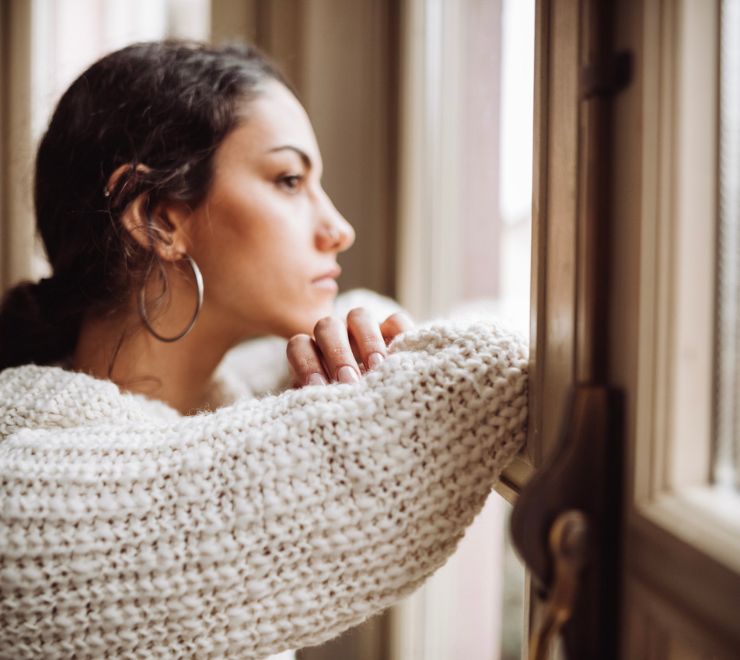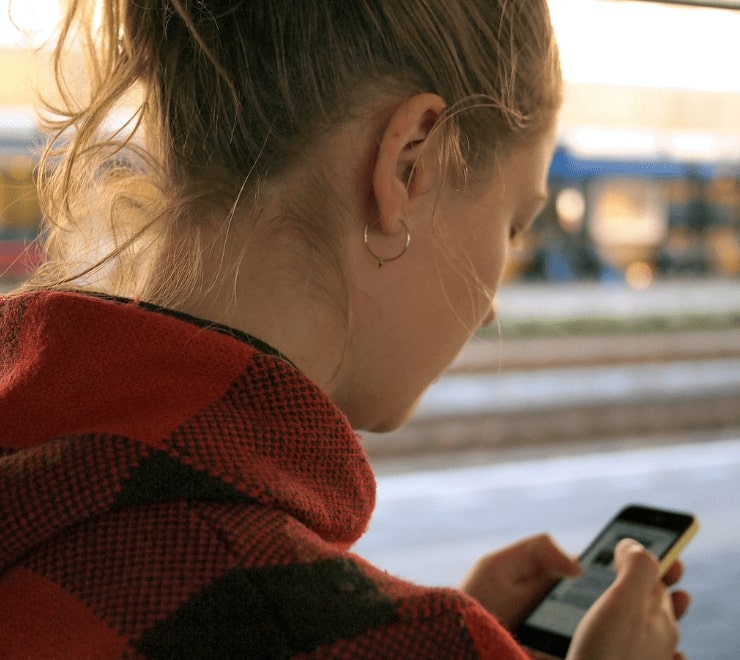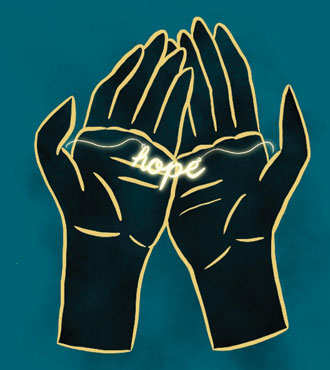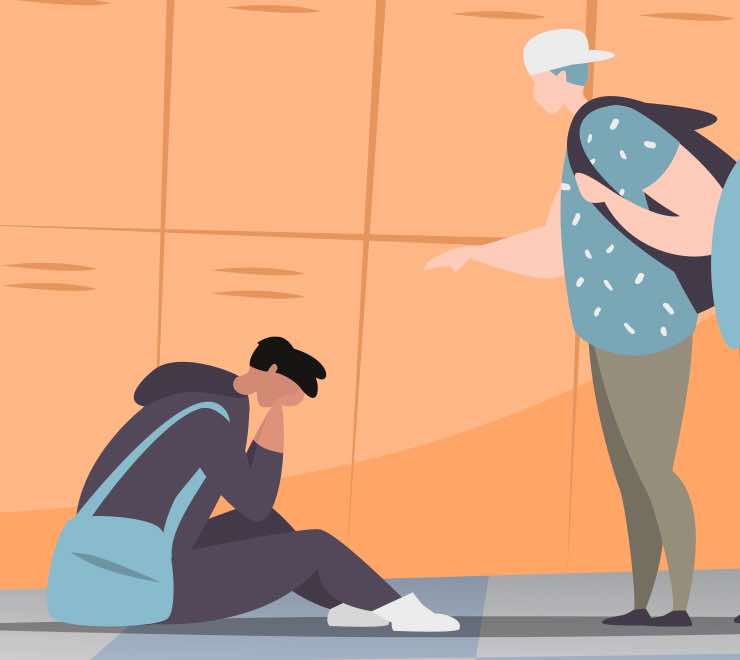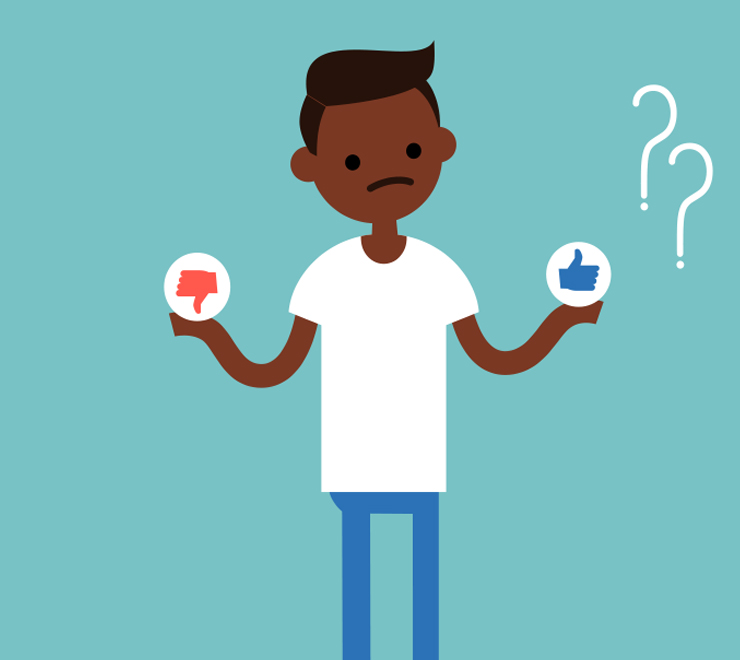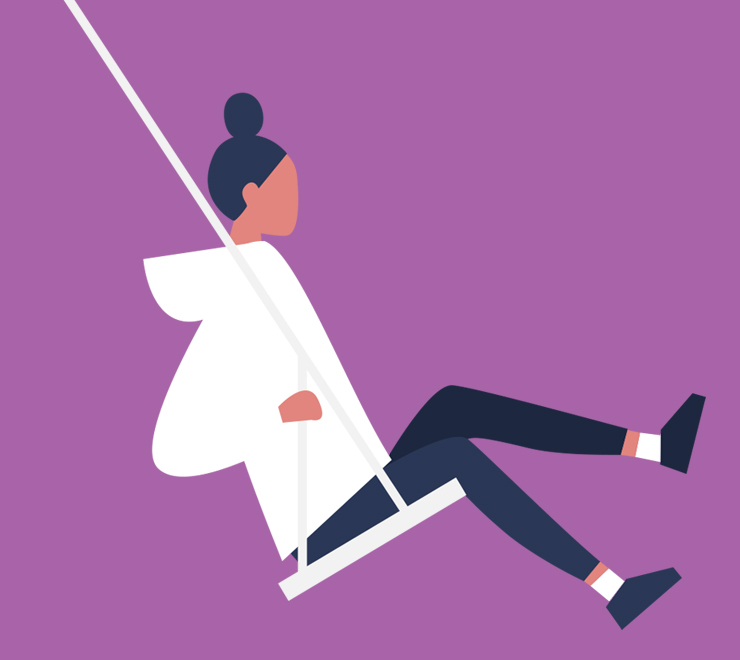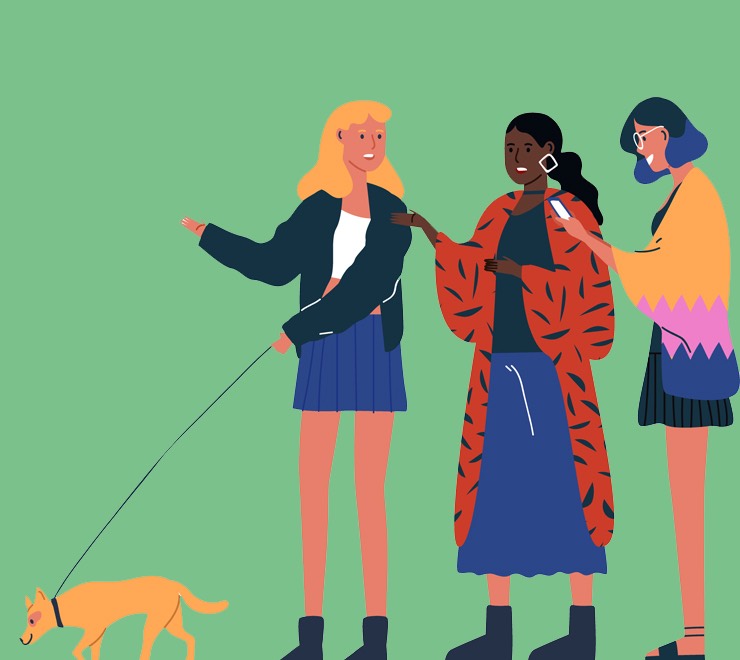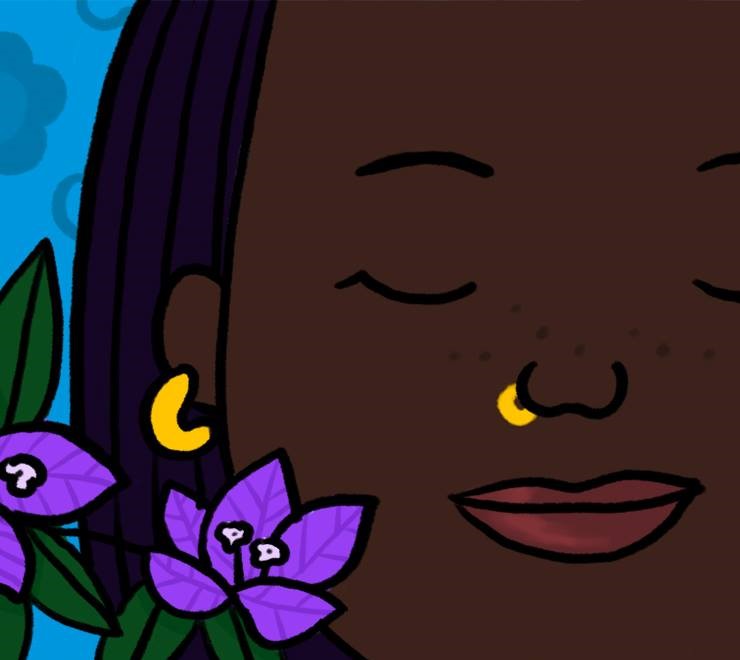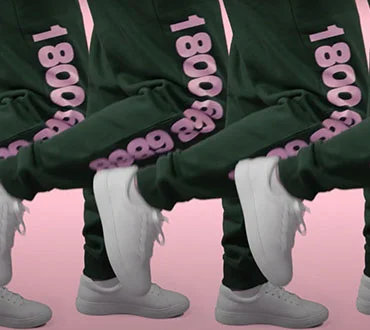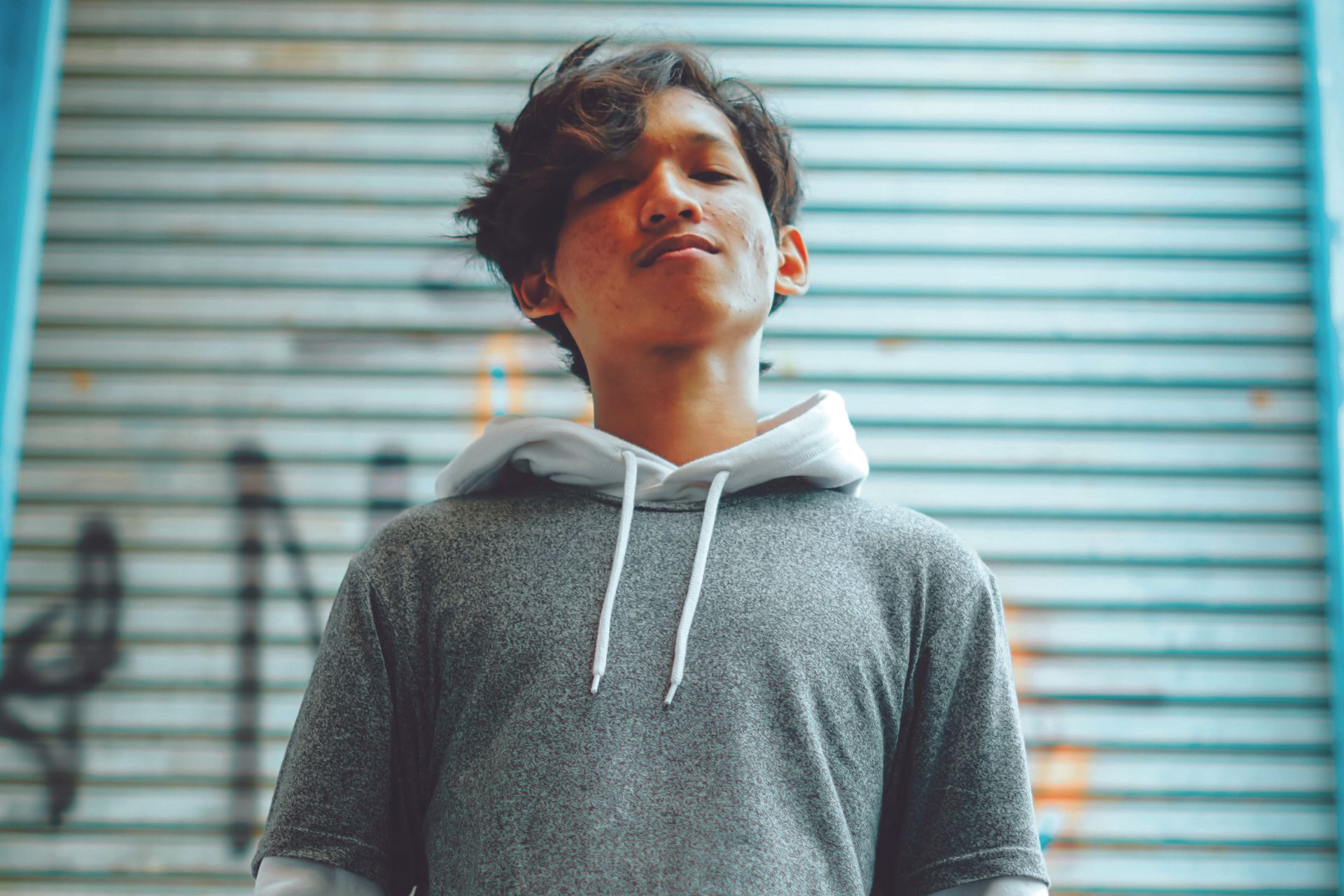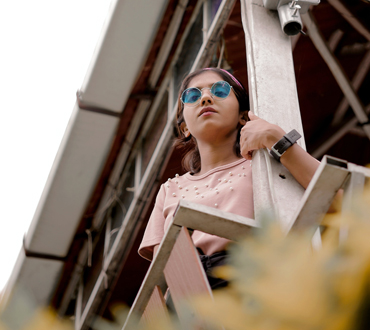This story was written by Kids Help Phone National Youth Council (NYC) member Katie.
Compulsive skin picking (a.k.a. excoriation disorder or dermatillomania) isn’t an anxiety disorder we often see in the media or discuss in health class. Though it may be shrouded in stigma and shame, it isn’t just an issue of “self-control” or “bad habits.” Talking about my struggle with skin picking was the first step in coping with the anxiety that comes with it. If you or someone you know is struggling, this is my experience — I hope it provides you with hope and comfort!
Part one: Shame and self-disgust
Sometimes, the term “self-conscious” doesn’t do justice to the ways we tear ourselves apart. In the summer of 2018, I struggled with overwhelming anxiety, and my skin, which had never been perfect, broke out into cystic acne. Although outwardly I was able to brush it off and claim it didn’t bother me, my skin was unbearable.
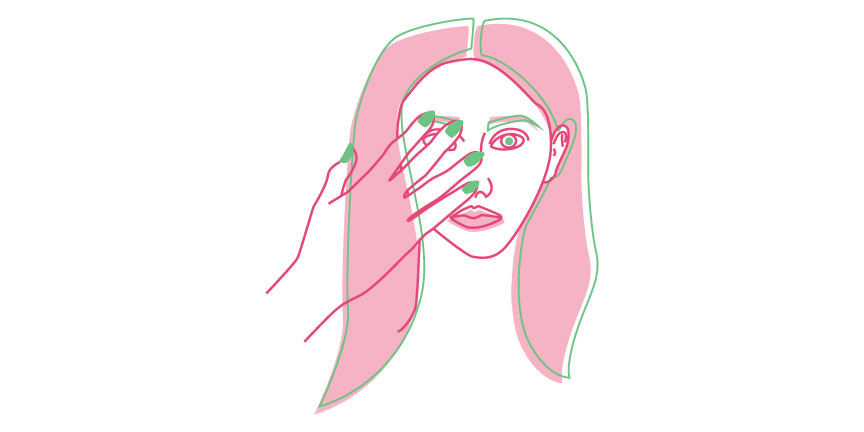
I felt like my acne was the elephant in the room — no matter how many times my friends reassured me that it didn’t matter, it felt like everyone was staring at it. I started to pick at my face constantly. The more anxious I felt, the worse my day had been, the more I hid my appearance from friends and family… the more I picked.
I felt guilty and ashamed. I hated the way I looked, and I knew the picking would only make it worse. I couldn’t stop touching, picking or scratching at my skin. It would happen unconsciously, as I wrote essays or read textbooks or scrolled through Instagram. It was constant, uncomfortable and unbearable.
I avoided mirrors, and when I did look at my reflection, I would obsessively pick at my skin for an hour or more (on a bad day). I would pick until my face was stinging and in pain. Anxious energy spread in my fingertips and I wanted to fix my appearance in the only way that felt possible — picking. I was so disgusted with myself — I didn’t want to tell anyone, and I didn’t think anyone would understand.
Part two: Finding friends
In the fall, I was studying in my favourite coffee shop when I overheard someone next to me talking about their struggle with skin picking. They were talking to a friend, and the response was sympathetic, but it was clear the friend couldn’t really understand. Lifting my face from where I’d buried it in my scarf, I interrupted the woman who was speaking — I could definitely understand what she was going through.
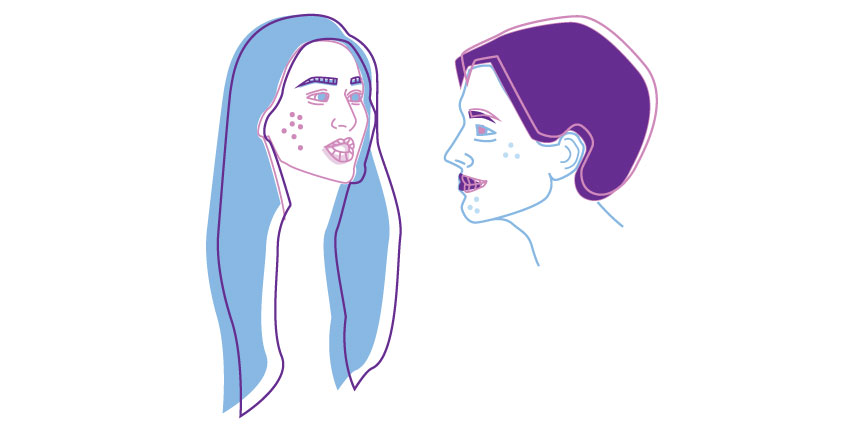
Two weeks later, she and I met for coffee, and it was a conversation I’ll never forget. Suddenly, my struggle wasn’t a secret, and it was very, very real. While we chatted, I realized that by just telling someone else I was struggling, the knot in my chest had begun to loosen.
After our meeting, I started to tell my friends and family about my struggle with skin picking. Although some found it hard to understand at first, many offered to help by gently checking in if they saw me lift a hand to my face, or distracting me with fidgets (like a fidget spinner or toy) and conversation when I felt anxious.
Part three: Tips and tools
Now that I’ve started to talk about skin picking, and work through some of the guilt and shame that comes with it, I’ve figured out some helpful day-to-day tips. Here are some of the things that help me cope with my skin picking:
Celebrating and normalizing acne and imperfections
- I follow Instagram accounts that feature natural, imperfect models with acne
- I print out photos of friends and other beautiful folks with acne and put them up on the wall above my bed
- sometimes it helps to write myself a letter from the perspective of my best friend. I imagine what I’d say to them if they were struggling with their appearance. By stepping into their shoes, I can see how irrelevant my skin is in the big picture!
Breaking habits
- if I’m feeling anxious, I’ll wear gloves on my hands, or jingly bracelets on my wrists, so I’m more conscious when I raise a hand to pick at my face
- I ask friends to watch my hands when I’m stressed
- I use fidgets to occupy my hands
Practicing self-acceptance
- I try to look at my acne in the mirror for a couple of minutes a day without touching or picking at it
- before I start the day, I take a few deep breaths and focus on self-respect, allowing my skin to heal and (most importantly) forgiving myself when I do pick at my skin
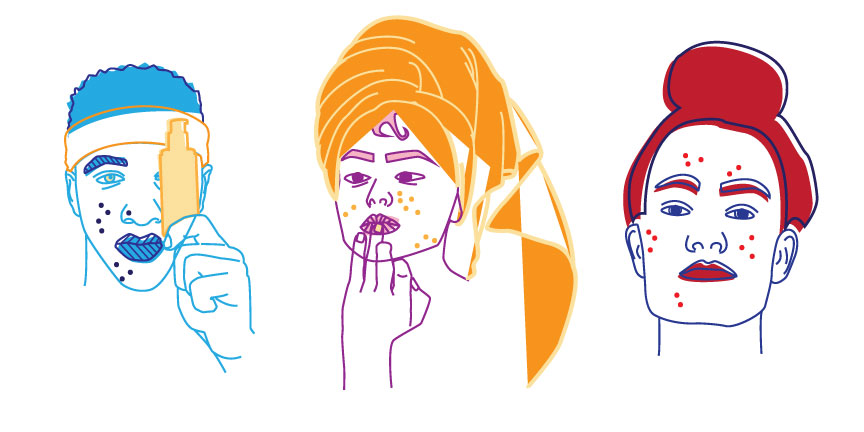
I’ve felt the anxious compulsion to pick for a long time, and I know there’s no quick fix. Although it may sound silly, some days I just have to acknowledge my skin out loud, and repeat to myself that the healing process is long term. Skin picking isn’t just an issue of self-control. Noticing and understanding the stress that’s involved has allowed me to start forgiving myself for the way anxiety can take over my body and emotions.
Although I still struggle with my skin and pick at it when I’m feeling heightened anxiety and stress, I know that I have the emotional tools to deal with the guilt and stigma that surround the issue, and slowly develop better coping mechanisms.
Anxiety disorders can be hard to cope with, but there are always things you can do to feel better. If you’re struggling with stress and anxiety, it’s important to talk to someone you trust (e.g. a friend, parent/caregiver, health-care professional, etc.). You can also contact Kids Help Phone 24/7 for support and ways to get relief.


